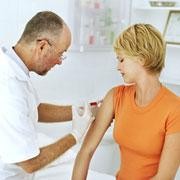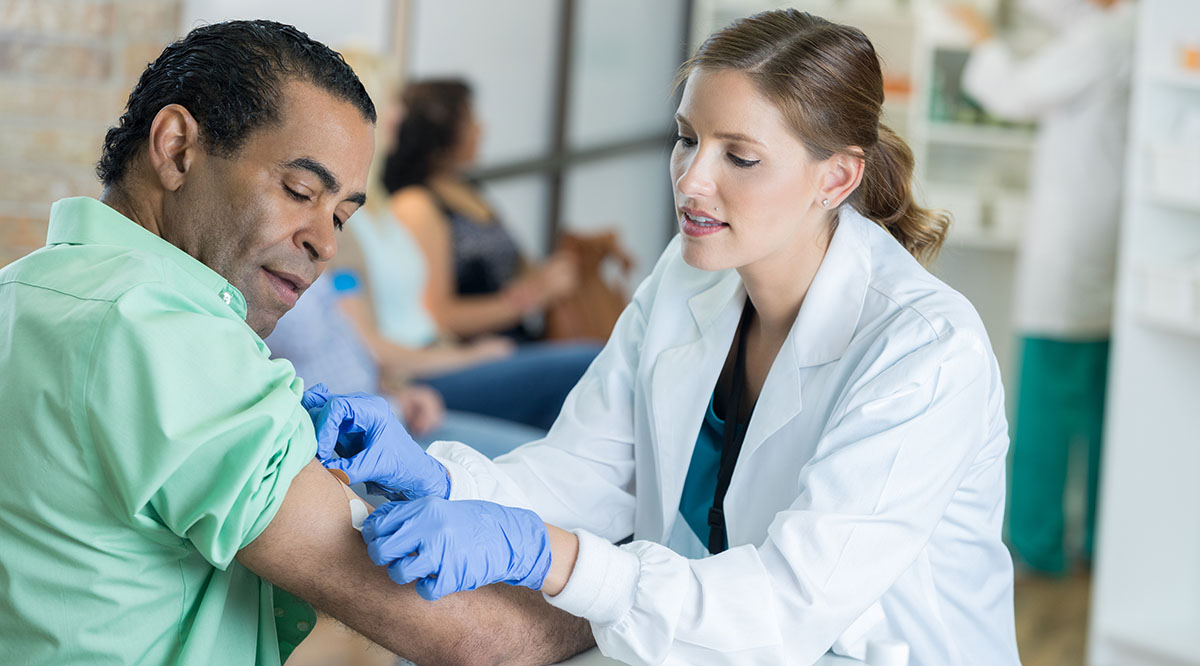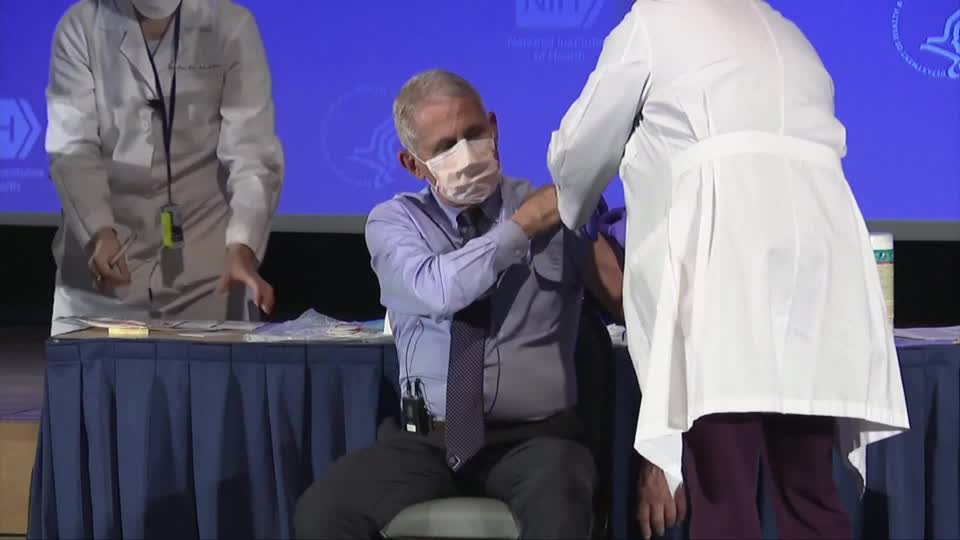D
deleted126335
Got Moderna last week. Other than howling at the moon occasionally, no side effects.
My Tourette's syndrome is worse.
Got Moderna last week. Other than howling at the moon occasionally, no side effects.
You should read about the vaccine developed for SARS-COV1Wouldn’t all of those side effects have been caught by Pfizers trial that ended in October and had 20,000 people getting the vaccine? I’m not sure I ever heard of hidden long term vaccine effects (except for Wakefield’s debacle)
Smart move. I am young and healthy, my risk is exceptionally low. Versus a vaccine with no long term data, and a history of serious issues with previous SARS-COV vaccine trials which I am sure you are already aware of.Bad move for anyone who's seen what covid can do to people


I think the lack of scientific knowledge regarding COVID and mainly its “Darwinian genesis” (!), places you (and all of us) to a huge disadvantage; judging people about their decision is not smart; indicates at least ignorance. Please don’t take this personally. It’s not your fault, it’s what we have been fed with this entire time.Bad move for anyone who's seen what covid can do to people

Smart move. I am young and healthy, my risk is exceptionally low. Versus a vaccine with no long term data, and a history of serious issues with previous SARS-COV vaccine trials which I am sure you are already aware of.

With the WHO changing the definition of herd immunity and Fauci now stating that herd immunity will only happen once 90% of the population is vaccinated, I am having a hard time understanding how we will reach the goalpost of 90% herd immunity. There is likely going to be mandates in the near future, which is extremely concerning to me that the government may have the power to demand medical therapy of unknown risk.I suspect 30-40% of Americans will do exactly as you have done and NOT get the mRNA vaccine. I hope this doesn't mean we can't resume normal activities by summer. I am so looking forward to a return to normal in 2021.

Because he is scared and it makes him act irrationally.Why are you so hysterical?
Have you read the study? It wasn't tens of thousands of subjects. There were 8,000 participants and only 8 patients in the vaccine group developed COVID.
Consensus summary report for CEPI/BC March 12–13, 2020 meeting: Assessment of risk of disease enhancement with COVID-19 vaccines - PMC
A novel coronavirus (CoV), Severe acute respiratory syndrome coronavirus 2 (SARS-CoV-2), emerged in late 2019 in Wuhan, China and has since spread as a global pandemic. Safe and effective vaccines are thus urgently needed to reduce the significant ...www.ncbi.nlm.nih.gov
Are you reading the same study?Yes I have. The data is based on 8,000 patients of which 170 developed COVID, of which 8 were given the vaccine. So yes I’ve reviewed the study.
“A review of unblinded reactogenicity data from the final analysis which consisted of a randomized subset of at least 8,000 participants 18 years and older in the phase 2/3 study demonstrates that the vaccine was well tolerated”Are you reading the same study?
A total of 43,548 participants underwent randomization, of whom 43,448 received injections: 21,720 with BNT162b2 and 21,728 with placebo. There were 8 cases of Covid-19 with onset at least 7 days after the second dose among participants assigned to receive BNT162b2 and 162 cases among those assigned to placebo; BNT162b2 was 95% effective in preventing Covid-19 (95% credible interval, 90.3 to 97.6).
It is stupid. You don’t have to explain your fear of vaccinations to people on the internet. You’re also arguing a very moot point as reactogenicity is available for over 1 million people now. I’m sure the less than 10 people who developed severe allergic reactions were less hysterical than you. Cheers.I’m not going to keep posting. This is stupid. It serves me zero purpose.
“A review of unblinded reactogenicity data from the final analysis which consisted of a randomized subset of at least 8,000 participants 18 years and older in the phase 2/3 study demonstrates that the vaccine was well tolerated”
Blade, don’t you think that there is some retained Tcell immunity after an infection? That a secondary infection won’t have the same significant reaction that a first one did? That is where most of the problems are in the younger populations, an immune response that is so inflammatory it creates problems.Long before COVID-19, scientists understood the transmission cycle and immunity of the four other coronaviruses that are very common causes of respiratory infections in humans. Like other respiratory viruses, such as influenza and RSV, immunity to coronaviruses is also very short-lived – up to nine months at the longest. This why these viruses are considered seasonal and we see spikes in cases every year because the “herd” never develops enough immunity.
Thanks to new research from renowned virologists and epidemiologists, we now know that natural immunity to the SARS-CoV-2 virus lasts only three to nine months. The reproductive number for COVID-19 is between 2-3. That means that in order to achieve herd immunity to COVID-19, 70 percent of the population would have be to infected every nine months! In other words, it’s impossible to achieve herd immunity to COVID-19 through widespread
transmission.

Debunking the Myth of Non-Vaccine Herd Immunity in COVID-19
Not all infectious diseases can be controlled through herd immunity.intermountainhealthcare.org
Ya of course, which I did. That doesn't mean we should allow people to make baseless claims or call people idiots for not being as scared, which is what happened. And that's exactly why doctors/politicians should be setting the example by taking the vaccine. How can you expect people to take a vaccine their doctor won't even take? We're in this position because less educated, frightened people had no direction and were manipulated by a narcissist who is our President for next couple weeks. Now's a good time to get a handle on this thing given we're at the worst it's been. It's not the time to be giving merit to paranoia.When we read his/her concerns about the covid 19 vaccine it reflects FEAR of the unknown among tens of millions of Americans. I would NOT dismiss the fear or concerns because there is still so much we don't know yet.
As we all get the second dose of mRNA covid 19 vaccines let's post any issues we see or hear about. Thanks.
I've read a few of your replies. The challenge as I see it is that you and others who think like you are looking for something that does not exist. Complete and absolute safety from harm never existed prior and will not exist moving forward. There isn't two options here: 1) The safe choice and 2) The unsafe choice. That of course would be easy. The choice (for the majority of us) is to take the vaccine and risk the side effect of the vaccine vs not take the vaccine and risk the weird long lasting side effects of COVID that those that survive it continue to suffer from. What complicates this is that you are a physician and therefore a potential vector for transmission to your patients. It is anti-intellectual at best and dangerous at its worst.I am not against all vaccines. However, it is not my duty to the general population as doctor to willingly submit to medical interventions that do not have a clear history of safety.
The assumption that this vaccine is safe is baseless. There are reasons the first SARS-COV has never had a vaccine produced even though it was known that this virus most likely would re-emerge. I have clearly presented not my case but the case presented back in 2005 when vaccines were being developed for SARS-COV. Were any of you aware of the issues back in 2005? Did any of you read the concerns that the AAMC had in regarding producing a rushed vaccine back in March? What have all these concerns evaporated? If so why? Your claim that one million doses have been administered so it puts any and all concerns to bed and as doctors we should just willingly get this vaccine and shut up.
It’s a baseless appeal to authority and falling in line that is based on zero evidence and zero common sense. Common sense says that my risk if I do contract this virus is extremely small. I have a greater risk of dying in a traffic accident or from an MI. Two, the risks associated with this vaccine have not been fleshed out. You have absolutely no justification in saying that. All sound medical expertise prior to the past few months have relied on years of data in being able to conclude that a vaccine is relatively safe in a population. Vaccines for this virus have raised concerns for infections with mutated strains in the future. So if a person that is vaccinated is infected with a mutate strain, the infection will be quite significant. 8 people in the vaccinated group ended up with COVID. We have zero evidence of what their response will be if they are infected with the mutated strain from England or South Africa. If it makes you feel better to get the vaccine get it. The reason I am upset is because I don’t want it. My decision is based on rational reasoning. I’ve been researching this is depth since early 2020. That is why I am well aware of all the issue. Two, you all make a blanket claim that this vaccine is safe. That does scare me. Why? Because you cannot make that claim because you don’t have that evidence, yet you do. That means administrators will also make that type of claim as will bureaucrats, and it is baseless. There seems to be cult like thinking emerging surrounding this issue. “Just do it. Everyone e else is. Help the others.” Yet your claims of safety are not based in truth but based on faith. I don’t want the vaccine. It shouldnt be forced upon me. And there isn’t solid evidence that the risk benefit ratio tilts towards any benefit but weighs heavily in favor of a massive risk to me.
For real? Or a joke?My Tourette's syndrome is worse.
There is absolutely no evidence that this vaccine prevents transmission of the virus. How do you know that no long term or short term risks exist? You don’t. The issue here is that this shouldn’t be thought of as a vaccine. Calling it a vaccine has its own prejudices. It’s in effect a drug. If a company developed an extremely rushed drug for a disease that had extremely low mortality for me and did not assure anyone that it would prevent me spreading the disease even if I took the drug, then I wouldn’t get the drug. How could you justifiably then argue that a novel drug that was developed over the course of a few months was inherently safe and anyone who questioned this faith in the drugs safety was questioning weird potential issues. This is pure insanity. If a novel anesthetic came out I wouldn’t be the first to use it on myself. I would wait. Especially if it came out without proper vetting. It’s bad practice. Do what you want. Again you say I am placing others at risk. Stop using this cult like thinking to try and force me to get this. You have zero evidence other than your deluded mind to claim I am putting others at risk.I've read a few of your replies. The challenge as I see it is that you and others who think like you are looking for something that does not exist. Complete and absolute safety from harm never existed prior and will not exist moving forward. There isn't two options here: 1) The safe choice and 2) The unsafe choice. That of course would be easy. The choice (for the majority of us) is to take the vaccine and risk the side effect of the vaccine vs not take the vaccine and risk the weird long lasting side effects of COVID that those that survive it continue to suffer from. What complicates this is that you are a physician and therefore a potential vector for transmission to your patients. It is anti-intellectual at best and dangerous at its worst.
40 year old software engineer working from home refusing to get the vaccine = personal choice
40 year old ER physician refusing to get the vaccine = bad example, irrational, and a walking danger to the stream of patients who have no choice but to come in contact with you
Eventually masks will go away and life will return to normal. Stop endangering your patients.
For real? Or a joke?
And then our Reptilian overlords will be able to have complete control of us with our new microchips. Resistance is futile.No one is forcing me? Then why the bizarre thinking, that I should be getting the vaccine out of concern for others, that is completely unfounded? Why did the WHO recently change their definition of herd immunity to include only vaccinated individuals (which this drug has never been proven to create) and now the definition of herd immunity includes 90% of vaccinated individuals in order to arrive at herd immunity? About 56% of the population wants to be vaccinated, which is a far cry from 90%. There is going to be a mass push to get back to "normal". The only route according to the experts is to get 90% of the population vaccinated. The writing is on the wall. Its obvious the message has penetrated even the supposedly highly educated as you all are falling in step with ridiculous claims about safety which are completely unfounded. There is going to be a push to vaccinate everyone.
No my job as a doctor is not to rush and get a vaccine of unknown safety simply to assure the local population that it is safe. That is flat out wrong and dangerous. Would you jump into an untested plane just to show others, “look I’m an aviation professional and I’m recklessly jumping into this plane. It’s ok, any fear is unjustified, just weirdos who are scared”
If you plane crashes and burns it ruins the image of all aviation professionals. Not just yours. And youre dead or crippled.
I don’t share your confidence in the efficacy and safety of the vaccine based on available literature- I am hopeful, but the data is simply insufficient to have that level of confidence. I agree with the principles you are advocating in your post- but those principles stand on an assumption that this vaccine is safe (long term) and efficacious, both claims which are not adequately proven right now.the decision to vaccinate yourself isn't just about you. it's about disease spread and the safety of the community at large. it's why many health systems mandate the flu vaccine. while i respect the decision of health systems not to require the covid vaccine, i admit to being surprised by it. if you're a physician, unless you're testing yourself routinely (which no one is doing) you have no idea to know if you've been or will be an asymptomatic carrier of covid. we should all be common sense smart enough to know that as physicians we have been and will continue to interact with the older/sicker of our population. it is not a stretch at all to conclude some among the physician population who choose not to vaccinate themselves will make their patients and co-workers sick.
the politics of this all isn't lost on me. the same people who wan't to 'hip hip hooray' that loser Trump for Operation Warp Speed are the same people who don't want to vaccinate themselves against the pandemic they didn't want to lock down for and they're the same people who believe a legally held election was stolen. it all touches on distrust, conspiracy theories, and just pure craziness. and the sheer number of people who wholeheartedly or even somewhat buy into all of this nonsense continues to both surprise and disgust me.
I don’t share your confidence in the efficacy and safety of the vaccine based on available literature- I am hopeful, but the data is simply insufficient to have that level of confidence. I agree with the principles you are advocating in your post- but those principles stand on an assumption that this vaccine is safe (long term) and efficacious, both claims which are not adequately proven right now.
There is room for optimism based on available data, but this rush to paint people considering a more cautious approach based on the limitations of available data as part of the right wing tin foil hat cohort is a little over the top. It reminds me of the rush to use HCQ earlier on during the pandemic- based on promising in vitro studies that ultimately didn’t pan out in clinical practice. How much harm did we do then?
Can we take an approach of measured optimism while recognizing there are some limits to our knowledge right now or is that too much to ask?
I think I saw a newsflash that this thing has now hit all seven continents. Not even the polar bears are safe. Do polar bears live in Antarctica?I agree that the safest route is to get neither the vaccine nor COVID19. Just cloister yourself off in Antarctica for the next decade and you should be good.
Other hemisphere.I think I saw a newsflash that this thing has now hit all seven continents. Not even the polar bears are safe. Do polar bears live in Antarctica?
They can’t mandate it. It is not even FDA approved, just EUA. Before getting my vaccine I had to sign something acknowledging this and a release that I will not sue the hospital. No way they could legally mandate it at this point...the decision to vaccinate yourself isn't just about you. it's about disease spread and the safety of the community at large. it's why many health systems mandate the flu vaccine. while i respect the decision of health systems not to require the covid vaccine, i admit to being surprised by it. if you're a physician, unless you're testing yourself routinely (which no one is doing) you have no idea to know if you've been or will be an asymptomatic carrier of covid. we should all be common sense smart enough to know that as physicians we have been and will continue to interact with the older/sicker of our population. it is not a stretch at all to conclude some among the physician population who choose not to vaccinate themselves will make their patients and co-workers sick.
Arctic, Antarctica. Somewhere really cold and dark and dangerous that I have no desire to ever visit.Other hemisphere.
I am not abstaining from vaccination. I’m still not sold on the excess optimism that isn’t supported by the data but the risk benefit analysis didn’t look good for catching COVID either. My point is that this isn’t an all or nothing discussion here. There is room for caution without painting the cautious as tin foil hatters. Yes, some are excessive in their worry, but there IS room for some objective analysis too.How will you get long term safety data for this vaccine? By looking at the willing, that's how. There's simply no other way. I respect your decision to obstain from vaccination, but all we know right now about the vaccine and the disease shifts benefit > risk clearly in the favor of vaccination when you consider the population at whole.
Based on what? You have zero data to make this assertion. What data do you have to come to your conclusion? Absolutely none. Its frustrating the amount of people who comment with such determination and with such eagerness as if they are expert, and have absolutely nothing to back their assertions. These are the same people deriding others as tinfoil hat wearers. The amount of projection here is unbelievable.How will you get long term safety data for this vaccine? By looking at the willing, that's how. There's simply no other way. I respect your decision to obstain from vaccination, but all we know right now about the vaccine and the disease shifts benefit > risk clearly in the favor of vaccination when you consider the population at whole.
I agree that the safest route is to get neither the vaccine nor COVID19. Just cloister yourself off in Antarctica for the next decade and you should be good.

Exactly my point. This is the type of thinking that is dangerous. "You need to get the vaccine, because youre killing your patients" Based on what evidence? You make a lot of assumptions based on zero evidence. I am not killing anyone by not being vaccinated, and you have zero idea the long term effects of this drug, let alone the short term effects, if this drug prevents asymptomatic spread in those who take the drug, and how long this drug protects the person who takes it. You make a lot of assumptions and pontificate as if you are the holder of these truths. You aren't. You are in no better position than any of us. We are all wading through this, and for you to stand up and pretend like you know better than anyone else is not based at all in fact or in you knowing that this drug is the cure all.the decision to vaccinate yourself isn't just about you. it's about disease spread and the safety of the community at large. it's why many health systems mandate the flu vaccine. while i respect the decision of health systems not to require the covid vaccine, i admit to being surprised by it. if you're a physician, unless you're testing yourself routinely (which no one is doing) you have no idea to know if you've been or will be an asymptomatic carrier of covid. we should all be common sense smart enough to know that as physicians we have been and will continue to interact with the older/sicker of our population. it is not a stretch at all to conclude some among the physician population who choose not to vaccinate themselves will make their patients and co-workers sick.
the politics of this all isn't lost on me. the same people who wan't to 'hip hip hooray' that loser Trump for Operation Warp Speed are the same people who don't want to vaccinate themselves against the pandemic they didn't want to lock down for and they're the same people who believe a legally held election was stolen. it all touches on distrust, conspiracy theories, and just pure craziness. and the sheer number of people who wholeheartedly or even somewhat buy into all of this nonsense continues to both surprise and disgust me.